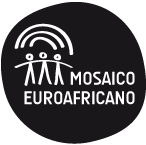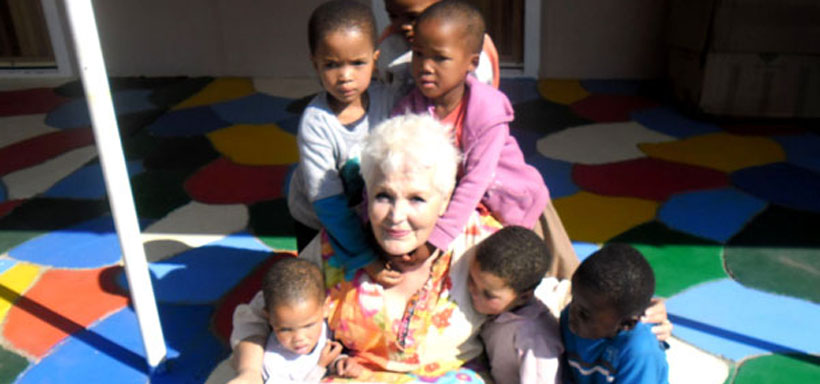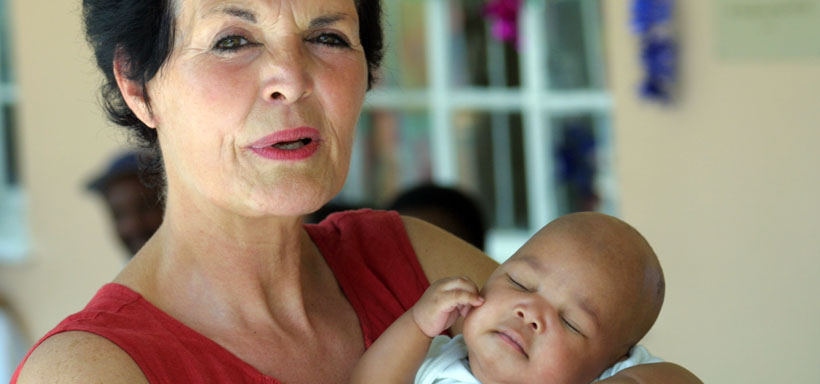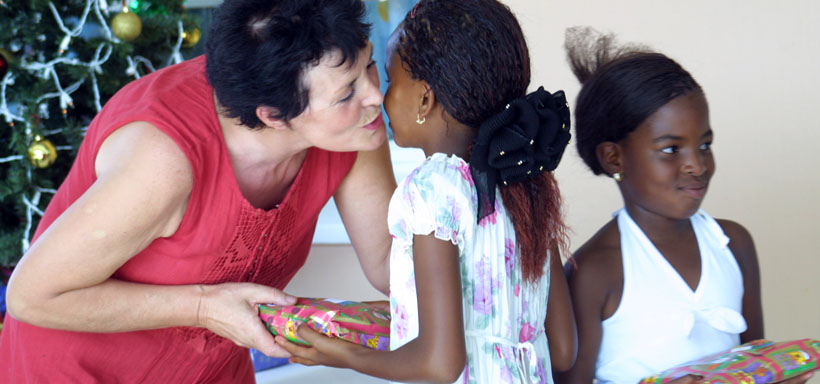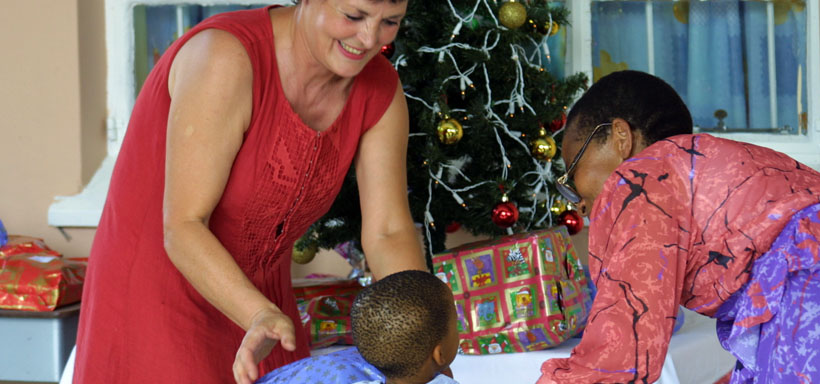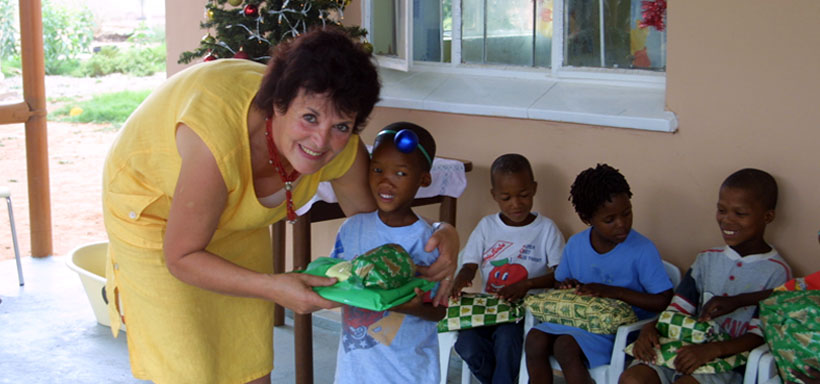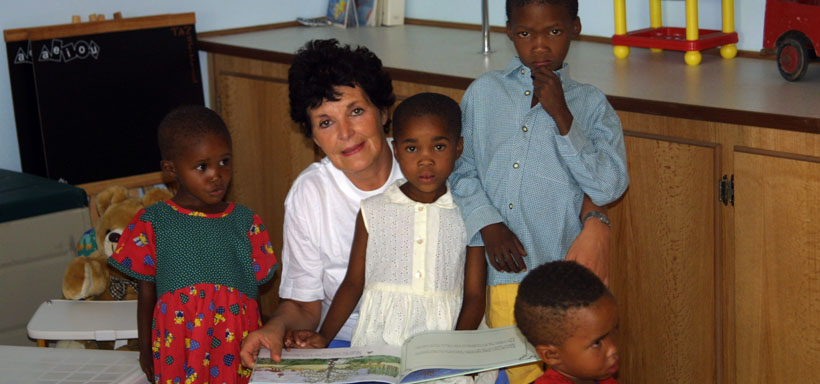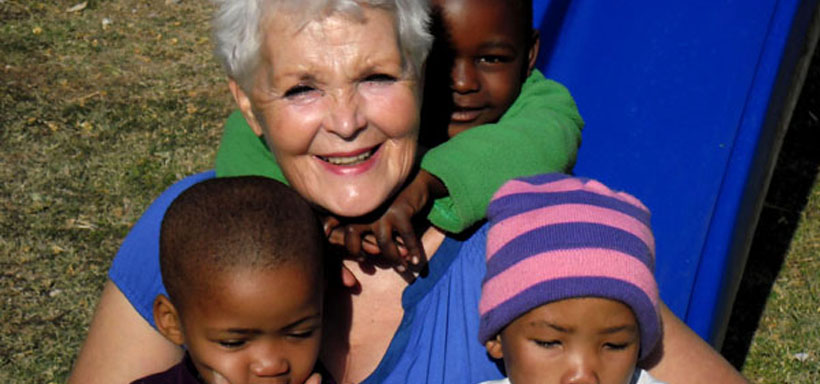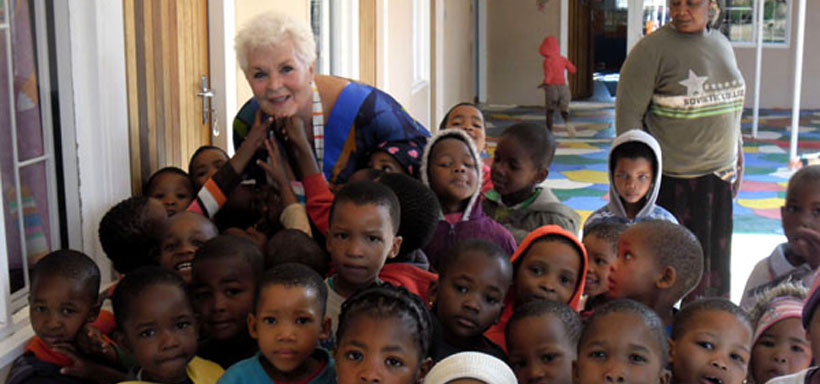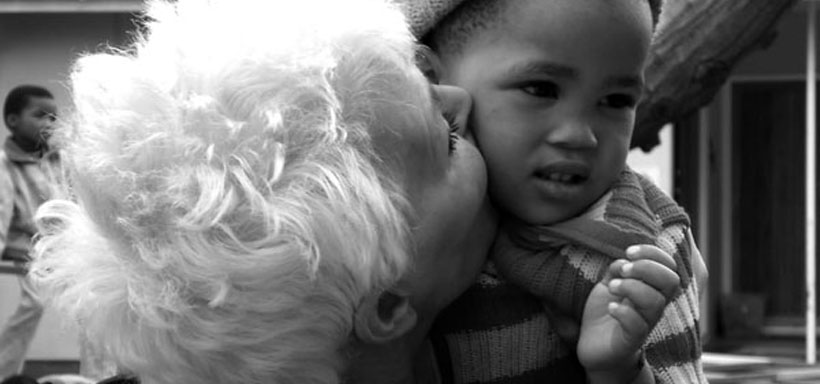CECILIA LACHAT AND THE KALAHARI KIDS
Cecilia Lachat is an ordinary woman who has done and continues to do special things. She is a Swiss nurse naturalized in Italy who has always felt the need to help the less fortunate in life. This led her to found in 2004, Mosaico Euro-Africano Association, a non-profit, independent of any religious or political group that raises money to manage and maintain the “Paolo Zanichelli Childrens’ home”, a nursery school for children aged 3 to 8 years Kalahari Desert in Botswana.
Asked if her children are happy she replies: “Yes, I think so, this school has become a reference for the community in the area, if the children were not at the center they would spend the whole day around the village do nothing and without sufficient and appropriate food to grow strong and healthy. When they come to us are a bit timid, then they adjust and have fun … Yes, I think this is happiness”. Cecilia adds: “Go a month in Africa, living in close contact with people, and you will understand how much our society is superficial, and a slave of desires rather than actual needs. Of Africa I really like simplicity. Life in Africa constantly reminds me what are the core values of our existence…. it reminds me that donate enriches much more than receive”. And: “Then these children are irresistible, it is impossible not to love them. I have seen so many children in my life, but the African ones are the most beautiful in the world”.
